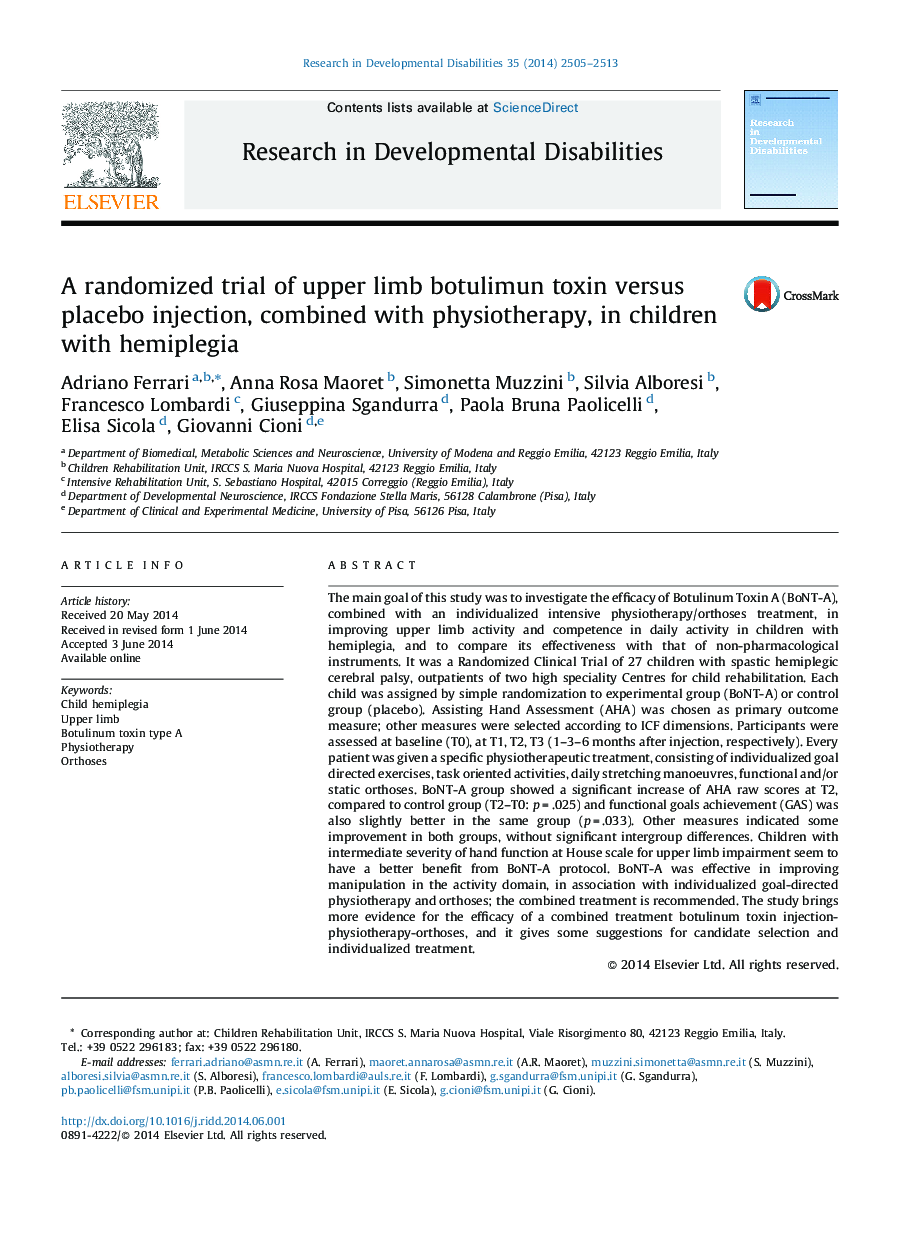| Article ID | Journal | Published Year | Pages | File Type |
|---|---|---|---|---|
| 10317374 | Research in Developmental Disabilities | 2014 | 9 Pages |
Abstract
The main goal of this study was to investigate the efficacy of Botulinum Toxin A (BoNT-A), combined with an individualized intensive physiotherapy/orthoses treatment, in improving upper limb activity and competence in daily activity in children with hemiplegia, and to compare its effectiveness with that of non-pharmacological instruments. It was a Randomized Clinical Trial of 27 children with spastic hemiplegic cerebral palsy, outpatients of two high speciality Centres for child rehabilitation. Each child was assigned by simple randomization to experimental group (BoNT-A) or control group (placebo). Assisting Hand Assessment (AHA) was chosen as primary outcome measure; other measures were selected according to ICF dimensions. Participants were assessed at baseline (T0), at T1, T2, T3 (1-3-6 months after injection, respectively). Every patient was given a specific physiotherapeutic treatment, consisting of individualized goal directed exercises, task oriented activities, daily stretching manoeuvres, functional and/or static orthoses. BoNT-A group showed a significant increase of AHA raw scores at T2, compared to control group (T2-T0: p = .025) and functional goals achievement (GAS) was also slightly better in the same group (p = .033). Other measures indicated some improvement in both groups, without significant intergroup differences. Children with intermediate severity of hand function at House scale for upper limb impairment seem to have a better benefit from BoNT-A protocol. BoNT-A was effective in improving manipulation in the activity domain, in association with individualized goal-directed physiotherapy and orthoses; the combined treatment is recommended. The study brings more evidence for the efficacy of a combined treatment botulinum toxin injection-physiotherapy-orthoses, and it gives some suggestions for candidate selection and individualized treatment.
Related Topics
Life Sciences
Neuroscience
Behavioral Neuroscience
Authors
Adriano Ferrari, Anna Rosa Maoret, Simonetta Muzzini, Silvia Alboresi, Francesco Lombardi, Giuseppina Sgandurra, Paola Bruna Paolicelli, Elisa Sicola, Giovanni Cioni,
